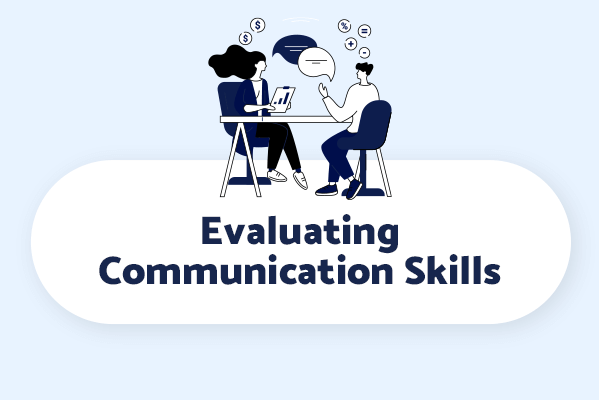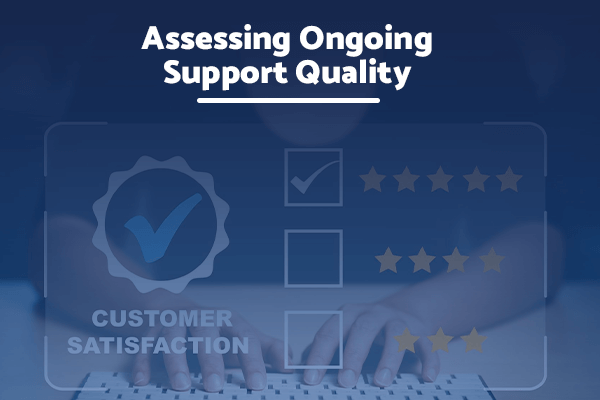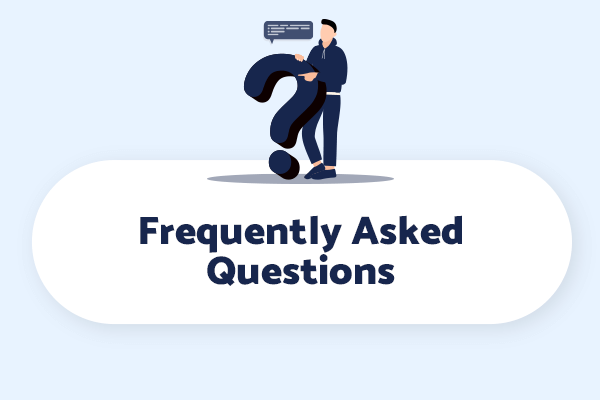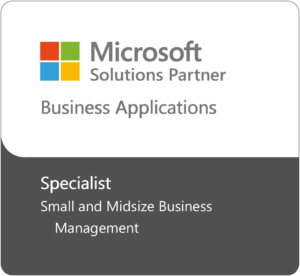Have you ever wondered how to distinguish between good and bad managed service providers (MSPs)?
With so many options available in the market, it can be a daunting task to find the right one for your business needs. However, fear not, as certain indicators can help you make an informed decision.
From evaluating credentials to assessing ongoing support quality, this discussion will provide you with valuable insights on how to spot the good from the bad MSPs.
As a leading Microsoft partner, Boyer & Associates has comprehensive expertise regarding managed services and your business. Learn more about how we can help.
Key Takeaways
- Evaluating MSP expertise and credentials is crucial to ensuring their technical knowledge, experience, and problem-solving skills are up to par.
- Certifications are important as they validate expertise, demonstrate commitment to industry standards, and ensure the necessary skills to manage IT services effectively.
- Assessing resumes and communication skills is key in identifying qualified MSPs, including analyzing qualifications, checking for red flags, and evaluating the ability to communicate and collaborate with clients.
Understanding MSP Expertise

To understand MSP expertise, you need to look beyond the surface and evaluate their technical knowledge, experience, and problem-solving skills.
When evaluating their experience, consider how long they’ve been in the industry and the types of clients they’ve worked with. A good MSP expert will have a deep understanding of the industry, staying up-to-date with the latest trends and technologies.
Technical proficiency is another crucial aspect to consider. Look for certifications and qualifications that demonstrate their expertise in different areas.
Problem-solving skills are also essential in a MSP expert. They should be able to analyze complex issues and develop effective solutions.
Identifying Genuine Credentials

When it comes to identifying genuine credentials in expert MSPs, there are a few important points to consider.
First, look for crucial certifications that demonstrate specialized knowledge and skills.
Next, take the time to verify the legitimacy of any accreditation claimed by the expert.
Essential Microsoft Business Application Certifications
Our team provides a diverse range of certifications, primarily focused on Microsoft business applications, underscoring our commitment to excellence and expertise in the field. Among these, we hold several Business Central functional consultant certifications, affirming our proficiency in implementing, managing, and utilizing Microsoft’s dynamic business management solution.
Additionally, we possess a PROSCI certification, highlighting our adeptness in change management processes and various Power Platform certifications, which validate our expertise in developing and deploying custom apps, automated workflows, and data analytics.
Verifying Legitimate Accreditation
To ensure the legitimacy of Microsoft credentials, it’s important to carefully verify the accreditation of the certifications being held. When checking credibility, confirming authenticity, and validating qualifications, you’re ensuring reliability in your choice of Microsoft MSPs.
Start by researching Microsoft partners and verifying the company’s reputation in the industry. Look for recognition from Microsoft according to their established standards and rigorous evaluation processes.
Check if the certification is up to date and if it requires ongoing education or recertification. Additionally, review the certification requirements and compare them to industry standards to ensure they align.
Don’t hesitate to contact Microsoft directly to confirm the authenticity of the certification.
Boyer & Associates is a valued Microsoft partner, winning US Partner of the Year in 2023. We also have several consultants with Microsoft certifications.
Red Flags in MSP Services

Now, let’s turn our attention to the red flags that you should be on the lookout for when it comes to MSP services.
First, it’s important to identify inadequate service levels, such as slow response times or frequent system downtime.
Additionally, be wary of hidden costs buried in contracts, as they can quickly add up and impact your budget.
Identifying Inadequate Service Levels
When evaluating MSP services, be on the lookout for clear indications of inadequate service levels. Understanding service delivery and measuring performance are crucial factors in determining customer satisfaction.
To recognize signs of inadequate service levels, pay attention to how well the MSP communicates with you. If they fail to provide regular updates or respond promptly to your inquiries, it might indicate a lack of commitment to delivering quality service.
Additionally, assess their ability to meet deadlines and resolve issues efficiently. A consistent pattern of missed deadlines or unresolved problems could be a red flag.
Lastly, consider the overall level of expertise and knowledge demonstrated by the MSP. If they lack the necessary skills or fail to provide effective solutions, it could indicate inadequate service levels.
Hidden Costs in Contracts
Be cautious of hidden costs in contracts when evaluating MSP services. Hidden fees can significantly impact your budget and overall cost analysis. It’s crucial to ensure financial transparency during contract negotiation to avoid any surprises down the line.
When reviewing the contract, carefully examine all the terms and conditions to identify any potential hidden fees. Look for clear and detailed information about the pricing structure, including any additional charges for services not explicitly mentioned. A reputable MSP will provide you with a transparent breakdown of costs, enabling effective budget management.
Before finalizing any agreement, conduct a thorough cost analysis to understand the true value of the services being offered. By being vigilant and proactive in detecting hidden costs, you can make informed decisions and avoid any financial setbacks.
Boyer & Associates is upfront about plan pricing and can work with you to customize a plan that fits your company’s needs.
Evaluating Communication Skills

When evaluating communication skills in expert MSPs, there are three important points to consider.
First, clear dialogue is essential for effective communication between the expert and the client.
Second, the ability to convey technical information in an easily understandable way is crucial.
Lastly, the expert should be able to overcome communication barriers, such as language or cultural differences, to ensure effective collaboration.
Importance of Clear Dialogue
Effective communication is essential when evaluating the communication skills of expert MSPs. Clear communication is crucial in ensuring that both parties understand each other’s expectations and goals.
When assessing the communication skills of expert MSPs, it’s important to look for effective dialogue, where they can convey their thoughts and ideas clearly and concisely. Transparent conversations, where information is shared openly and honestly, are indicative of strong communication skills.
Good MSPs possess the ability to listen actively and respond appropriately, fostering open communication. They should also demonstrate the capability to adapt their communication style to suit different audiences and effectively convey complex technical information in simple terms.
Conveying Technical Information
Assessing the communication skills of expert MSPs includes evaluating how effectively they convey technical information. When it comes to conveying technical concepts, effective communication is crucial.
Good MSPs understand the importance of simplifying jargon and using language that their clients can easily understand. They can break down complex ideas into simpler terms, making it easier for non-technical individuals to grasp.
Additionally, they utilize visual aids to enhance their explanations and make information more accessible. Visual representations such as diagrams, charts, and graphs can help clients visualize complex concepts. Furthermore, good MSPs also make use of interactive demonstrations to engage their audience and provide hands-on experiences.
Overcoming Communication Barriers
To evaluate the communication skills of expert MSPs, consider how effectively they overcome barriers and convey technical information.
Overcoming language barriers is crucial in a globalized world. Look for expert MSPs who are adept at using clear and concise language, avoiding jargon and technical terms that might confuse clients.
Improving non-verbal communication is also important. Pay attention to their body language and facial expressions, as these can greatly impact understanding and trust.
Effective listening skills are essential for expert MSPs to grasp clients’ needs and concerns. Cultural differences in communication should be acknowledged and respected. Look for experts who can navigate these differences with sensitivity and inclusiveness.
Lastly, managing communication misunderstandings is a key indicator of strong communication skills. Observe how expert MSPs handle conflicts and clarify misunderstandings to ensure smooth and effective communication.
Assessing Ongoing Support Quality

When assessing ongoing support quality, there are three key points to consider.
First, evaluate the response times of the expert MSPs. Are they prompt and efficient in addressing your concerns?
Second, consider the support scope. Do they have a comprehensive understanding of your specific needs and requirements?
Lastly, analyze their problem-resolution skills. Do they have a track record of effectively resolving issues?
Evaluating Response Times
One key aspect to consider in evaluating ongoing support quality is the speed of response from expert MSPs. Response times play a crucial role in measuring customer satisfaction, service reliability, service availability, technical expertise, and response efficiency.
A good MSP expert should be able to promptly address any issues or concerns that arise. They should have efficient processes in place to ensure that they can respond to customer inquiries and resolve technical problems quickly. By evaluating response times, you can gauge the level of dedication and professionalism of the MSP expert.
A slow response time might indicate a lack of efficiency or a lack of resources, which can affect the overall quality of ongoing support. On the other hand, a quick response time reflects a high commitment to customer satisfaction and a strong technical expertise.
Understanding Support Scope
Assess ongoing support quality by understanding the scope of support provided. To evaluate the support availability, you need to know the service limitations. Additionally, consider the level of troubleshooting assistance provided. Do they offer remote assistance or only onsite visits?
A key aspect to consider is customer satisfaction. Look for testimonials or reviews from existing customers to gauge their level of satisfaction with the support they receive.
Lastly, evaluate the service delivery. Does the MSP have a structured process in place for handling support requests?
Understanding the scope of support provided will help you assess the ongoing support quality and make an informed decision when choosing a MSP.
Analyzing Problem Resolution
To analyze ongoing support quality, start by evaluating the effectiveness of problem resolution. The first step is problem identification. A good MSP expert should have a systematic approach to identifying and understanding the root cause of issues. They should also be skilled in effective troubleshooting, using their expertise to quickly diagnose and resolve problems.
Customer satisfaction is another crucial factor. A good MSP expert will prioritize resolving issues promptly and efficiently, ensuring that customers are satisfied with the support they receive.
Continuous improvement is key as well. A reputable MSP expert will constantly strive to enhance their problem-resolution processes and techniques.
Lastly, service level agreements play a vital role in analyzing ongoing support quality. expert MSPs should have well-defined SLAs to ensure the timely resolution of problems and meet customer expectations.
Frequently Asked Questions

What are some red flags to look out for when assessing MSP services?
Common red flags to watch for when assessing MSP services include lack of transparency, poor communication, inconsistent service delivery, and unqualified staff. These warning signs can be key indicators of a bad MSP.
How important are communication skills when evaluating expert MSPs?
When evaluating expert MSPs, communication skills are crucial. With effective communication, more than technical expertise is needed. Look for genuine credentials, consider ongoing support quality, and be aware of red flags.
What factors should be considered when assessing the quality of ongoing support provided by a MSP?
When assessing the quality of ongoing support provided by a MSP, consider factors such as response time, expertise, customer satisfaction, and proactive problem-solving. These elements will help you evaluate the MSP’s effectiveness in meeting your needs.
Maximize Your Microsoft Business Apps with Good MSPs
When it comes to choosing a MSP, it’s crucial to be able to spot the good from the bad.
By understanding their expertise, identifying genuine credentials, and evaluating communication skills, you can ensure that you’re partnering with a reliable and competent MSP. Additionally, assessing the quality of their ongoing support will help you determine if they can provide the level of service and assistance your business needs.
Boyer & Associates is ready to help you increase efficiency and maximize the use of your Microsoft business applications. Our expertise is proven time and time again throughout dozens of industries, including nonprofits. Set up a call to get started.
Read about how Napa Valley rethinks its fundraising strategy with Microsoft nonprofit software










